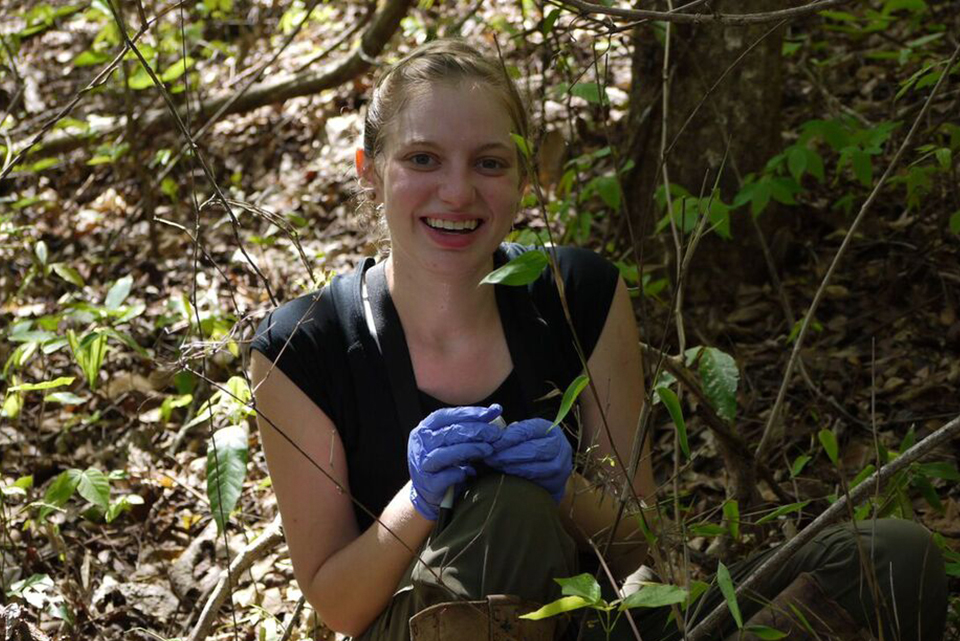
Walco in Zambia.
Courtesy of Emily Walco
At the age of seven, Emily Walco got lost at the San Diego Zoo. Her parents found her, mesmerized, in front of the gorilla exhibit.
“I’ve always loved animals,” said Walco, who graduates in December with a degree in anthropology from the College of Arts & Sciences at Washington University in St. Louis. “Back then, I would have told you I wanted to be a vet. But what I really loved was watching animals and trying to figure out why they did what they did.”
Walco brought her fascination to the field, studying Kinda baboons in Zambia for the Kasanka Baboon Project. Founded by Washington University anthropology PhD candidate Anna Weyher, the project is the first of its kind.
“Kindas are a species whose behavior was largely unknown,” said Walco. “Their range, their numbers, their mating habits—any question you could ask had yet to be answered.”
Walco specifically studied the relationship between the male baboons and their infants. Turns out Kindas make pretty good dads.
“We see them playing around and cuddling, which you don’t see as much in other species,” said Walco. “My theory is that the male does this to have greater access to the female.”
Walco says her two summers in the bush have reinforced her passion for fieldwork. She loved the isolation and the open sky. Some nights, Walco would wake to the sound of hippos. Other nights—gunshots. Despite federal laws protecting wildlife, poaching is a big problem in Kasanka National Park. That’s why the project’s educational mission is so important, Walco said. Researchers provide computer lessons to nearby residents, host a science club for girls, and award scholarships to girls who want to complete high school.
“It’s not about lecturing and saying, ‘Don’t kill these animals,’” Walco said. “It’s more about fostering a sense of caring. Our scouts get it. They say, ‘I could never kill or eat these animals.’”
Walco hopes to incorporate that strong community component into her future research, wherever that may be. She currently is applying to graduate programs to study apes.
“If we don’t change something there will be no more apes to study,” said Walco, who also studied capuchin monkeys in Costa Rica with Amanda D. Melin, PhD, assistant professor of anthropology in Arts & Sciences. “And not just apes. Once you destroy the habitat, everything is gone. But if you reach people, especially at a young age, maybe then you can make a difference.”